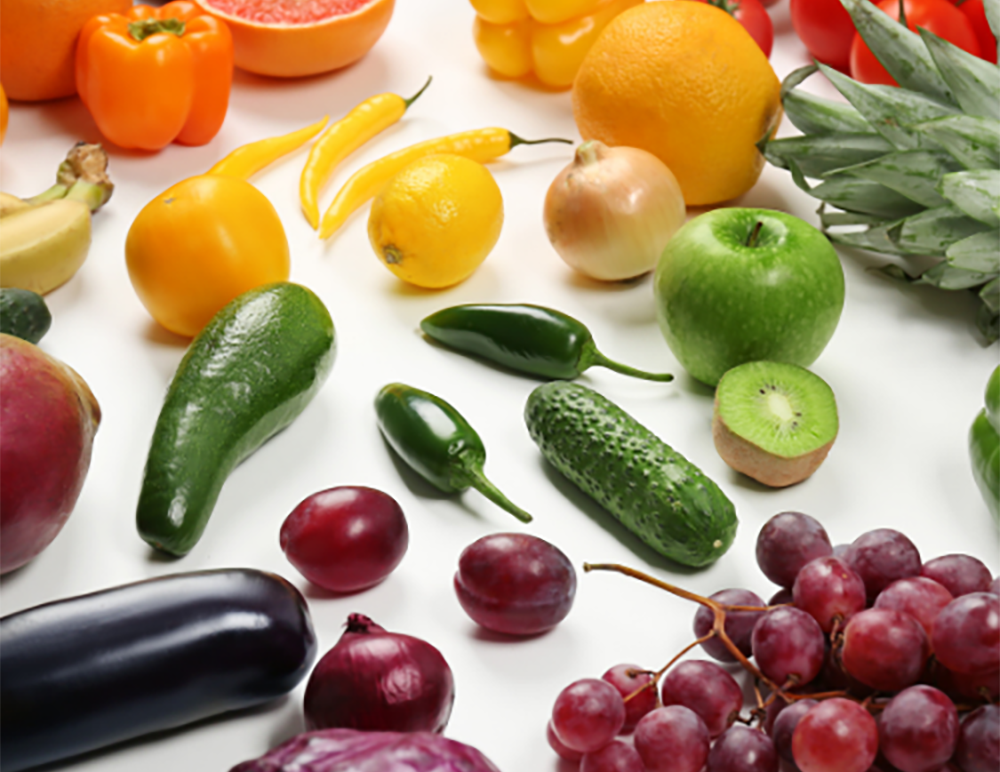
The Dirty Dozen and The Clean Fifteen
Did you know that some foods (Kale being one of them) can have over 20 different types of pesticides on them…Eeek!! Am I the only one that finds that crazy??!! Luckily, every year, the Environmental Working Group (EWG) releases a report, the Dirty Dozen, which is a list of the ‘dirtiest’ or most contaminated fruits and vegetables based on pesticide use. The report ranks foods based on both the amount of pesticide residue and the number of different pesticides found on the tested produce. This report allows us to make educated decisions about what we put into our bodies – remember – knowledge is power!
By nature, pesticides are toxic and can have a huge impact on our general health and wellbeing. Many pesticides have been linked to reproductive and developmental damage, hormonal disruption, neurological problems and even some cancers. This is especially true for babies and children due to the damage they can cause to the developing brain. In fact, a 2020 study found an increase in IQ loss in children due to exposure to organophosphates, a common class of pesticides.
The EWG also provide another great resource – the Clean Fifteen. This report offers consumers a list of foods with the least amount of pesticides. According to the report, nearly 70% of the “Clean” fruit and vegetable samples had no pesticide residue at all, making them a safer choice.
| DIRTY DOZEN | CLEAN FIFTEEN |
|
Strawberries Spinach Kale, Collards & Mustard Greens Nectarines Apples Grapes Cherries Peaches Pears Bell & Hot Peppers Celery Tomatoes |
Avocados Sweet Corn Pineapple Onions Papaya Sweet Peas (frozen) Eggplant Asparagus Broccoli Cabbage Kiwi Cauliflower Mushrooms Honeydew Melon Cantaloupe |
Does this mean you should avoid strawberries and spinach? Absolutely not! It is important to remember that everyone should be eating plenty of fruits and vegetables whether organic or conventionally grown. The health benefits of a diet with a wide variety of fruit and vegetables far outweigh the risk of pesticide exposure.
SO WHAT CAN YOU DO TO REDUCE YOUR RISK OF EXPOSURE?
- Buy organic whenever possible.
- Make the foods from the Clean Fifteen list a priority.
- Wash your fruit and vegetables thoroughly with water.
- Grow your own.
- Buy in season – prices drop when fruits and vegetables are in season so this is a perfect time to stock up on organic foods – especially the ones high on the dirty dozen list that might be more expensive or more difficult to get hold of at other times.
- Freeze or can organic foods. Overfill your shopping cart with organic fruits and vegetables on sale or in season and then prep and freeze or can them for future use.
- Seek advice from a professional to find ways of incorporating safe, healthy foods into your diet. To work with a functional practitioner click here.
For more information on the Dirty Dozen & Clean Fifteen report click here.


Leave a comment